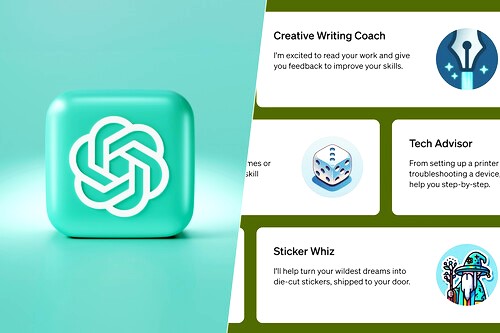OpenAI to launch custom GPT store next week
OpenAI is set to launch a store for its GPTs (Generative Pre-trained Transformers), which are custom applications built on top of its highly advanced text-generating AI models such as GPT-4 and others.
According to reports, the store is expected to go live sometime in the coming week, allowing developers and businesses to purchase GPTs for a variety of use cases, including language translation, content creation, and more.
OpenAI has emphasized that developers creating GPTs must carefully review the company’s revised usage policies and adhere to the GPT brand guidelines. This step is essential to guarantee compliance before their GPTs can be listed in the designated marketplace known as the GPT Store. Additionally, developers are required to verify their user profiles and ensure that their GPTs are published with a “public” status.
GPT Store launching next week – OpenAI pic.twitter.com/I6mkZKtgZG
— Manish Singh (@refsrc) January 4, 2024
The unveiling of the GPT Store took place last year at OpenAI’s inaugural developer conference, DevDay. However, its launch was postponed in December, likely attributable to the leadership changes that transpired in November, shortly after the initial announcement.
Also Read: OpenAI delays launch of custom GPT store
Creating GPTs doesn’t necessitate coding experience and can be tailored to the developer’s desired level of simplicity or complexity. By expressing the desired capabilities in plain language, developers can utilize OpenAI’s GPT-building tool, GPT Builder. This tool endeavours to transform those specifications into an AI-powered chatbot.
Following OpenAI’s DevDay conference, developers gained the ability to craft and share their GPTs through the ChatGPT website. However, it’s worth noting that, while sharing among users on the platform is enabled, the public listing feature has not been made available during this period.
It’s unknown if the GPT Store will have a revenue-sharing scheme at launch. The monetization plan is still uncertain, and there’s no mention of it in the email about the store’s launch.
OpenAI’s transition from an AI model provider to a platform has been somewhat expected. The company hinted at its plans in March when it released plug-ins for its AI-powered chatbot, ChatGPT. This move allowed third-party developers to work within OpenAI’s model ecosystem for the first time.


Comments are closed.